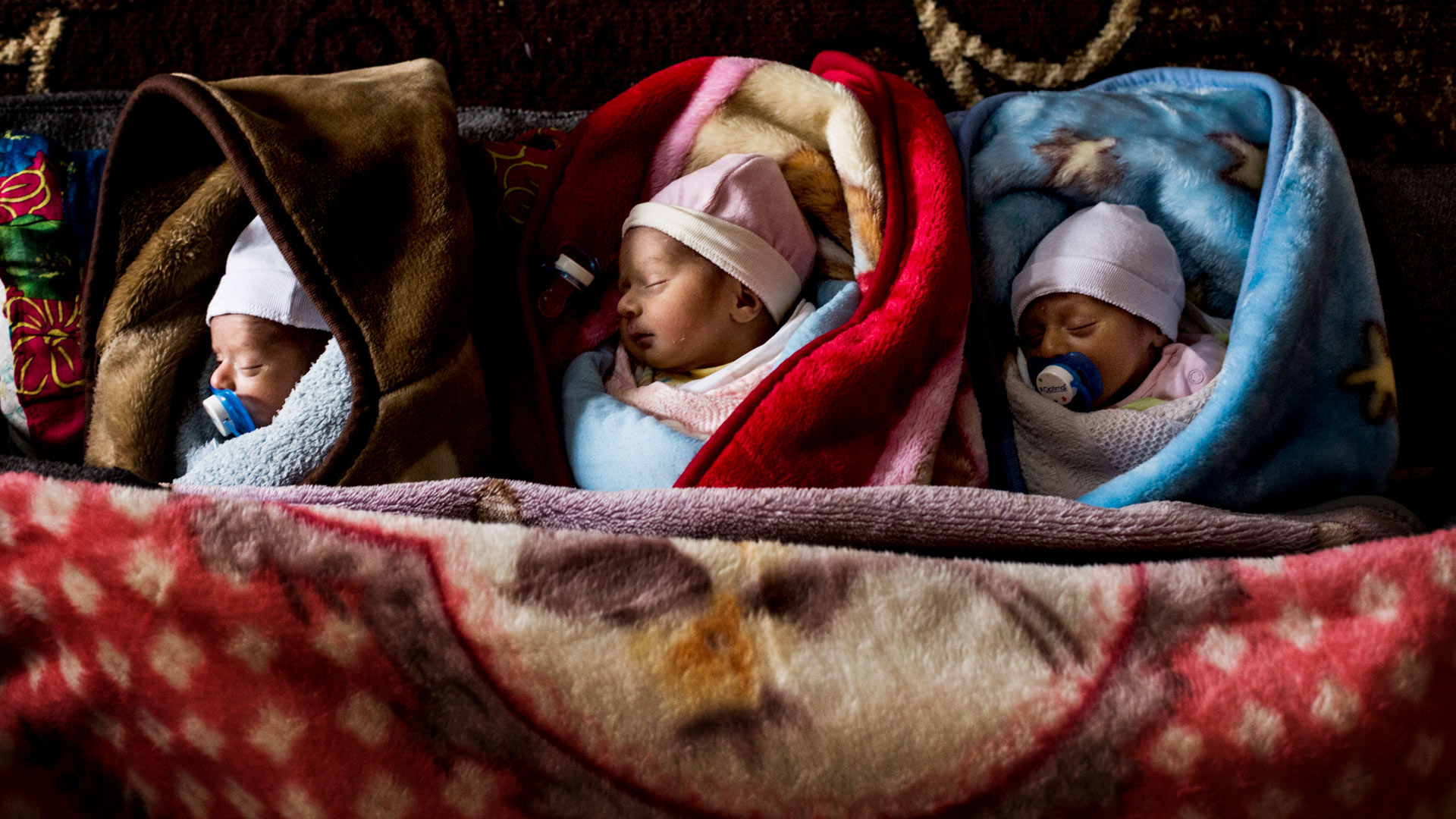Emergency team starts arriving in Syria, assessments under way in Lebanon
Emergency team starts arriving in Syria, assessments under way in Lebanon

GENEVA, July 21 (UNHCR) - Members of the emergency team leading UNHCR operations for the Lebanon crisis have begun arriving in Damascus and are expected to head to Beirut on Friday or Saturday. Urgent supplies of mattresses, blankets and tents from the agency's warehouses in Jordan were being moved to parts of Syria close to the border with Lebanon for delivery as soon as practicable.
The first task of the emergency team in Lebanon will be to reinforce UNHCR staff already on the ground carrying out preliminary assessments of the needs of tens of thousands of displaced people who have fled to mountain valleys to escape the conflict.
The needs of these people, particularly those living in communal buildings such as schools, will become critical if they do not get assistance soon. Tens of thousands of displaced have found shelter with family and friends, but the host families will need outside assistance to ease the burden.
"Host families that have been really generous are going to start suffering soon with the blockade if supplies can't come in," said UNHCR's official in Beirut Arafat Jamal.
Meanwhile, UN Secretary-General Kofi Annan on Thursday stressed the need for access. "It is imperative to establish safe corridors for humanitarian workers and relief supplies to reach the civilian population," he told the UN Security Council in New York.
Calling for hostilities to cease, Annan also said the humanitarian task facing the UN in Lebanon was massive and must be funded urgently. "As early as next week I hope to issue a UN Flash Appeal, covering an initial response period of three to six months."
In Geneva, chief UNHCR spokesman Ron Redmond said the agency was waiting for guarantees of safe passage to mountain regions. "We are ready to release tonnes of supplies, including shelter materials, from our emergency stockpiles in Jordan and Syria as soon as safe transport routes are worked out," he told journalists in Geneva.
In Beirut, Jamal said UNHCR needed to get supplies moving soon to the displaced. "Many are living in communal shelters like schools, which aren't designed to cope with this kind of situation. They need improved shelter, mattresses and much better sanitation arrangements," he said.
He also stressed the urgent need for access. "Even if supplies can come into Beirut by sea, we still need to truck them safely into the mountains and we don't have any guarantees about that."
UNHCR is present in the mountain regions of the Aleye Valley and the Kesrouan region, as well as in Sidon in the south. UNHCR staff in one valley in the Shuf Mountains have reported that the numbers of displaced people arriving is still climbing steadily.
Most of the new arrivals are finding places to stay with family and friends. There are some 80,000 displaced people in the Aleye Valley, some 22,000 of whom are living in schools where space is at a premium and sanitation facilities under pressure.
One of the most urgent needs is for mattresses, and UNHCR has been scouring the shops in Beirut and in the mountain regions buying up supplies and distributing mattresses to those people living in public buildings.
UNHCR has considerable stocks already positioned in the Middle East region.
In Jordan and Syria alone, for example, UNHCR has 250,000 blankets, some 50,000 mattresses, 30,000 kitchen sets, 22,000 tents, 17,000 stoves and other relief items. Additional quantities are available in Kuwait and Iraq.
Redmond in Geneva said the UNHCR was also concerned about the safety and well-being of the approximately 20,000 refugees and asylum seekers, mainly Iraqis, in Lebanon. "Those who have been approaching our Beirut office for assistance have been taken to public shelters where they have received assistance," he said.
In Syria, mobile emergency teams will be rapidly despatched to the field to monitor border crossing points for outflows of refugees and boost UNHCR's border monitoring presence at two of the most active border crossing points. So far, more than 100,000 people have crossed into Syria. Most are Syrian nationals who have been working in Lebanon, but there are also Lebanese with family links not requiring assistance. Some 700 Lebanese families have needed help, however, and are living in schools and assisted by the Syrian Red Crescent.
UNHCR is working very closely with other UN agencies and the Lebanese government's High Relief Committee. The initial costs of the UNHCR operation are expected to be more than $18 million.








